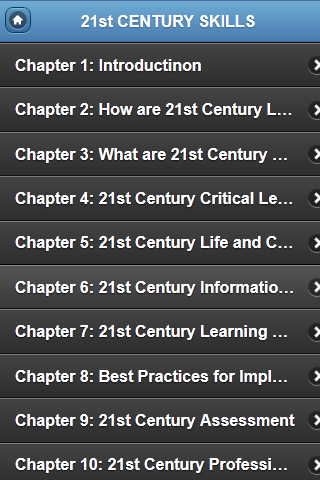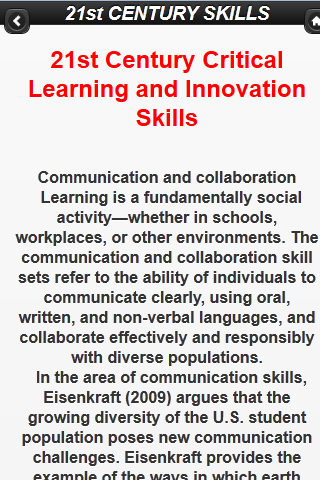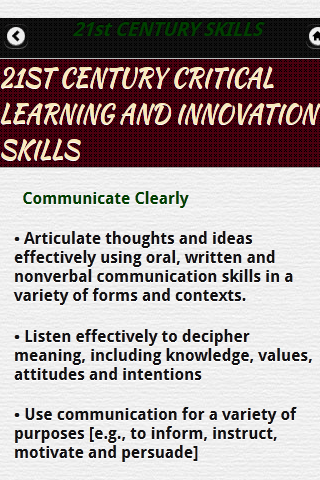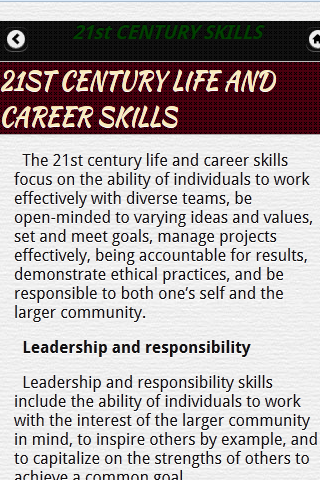关闭纠错举报
我站仅对该软件提供链接服务,该软件内容来自于第三方上传分享,版权问题均与我站无关。如果该软件触犯了您的权利,请点此版权申诉。
+ 展开全部应用介绍
This literature review synthesizes published works on 21st century learning skills. There has been a significant shift over the last century from manufacturing to emphasizing information and knowledge services. Knowledge itself is growing ever more specialized and expanding exponentially. Information and communication technology is transforming how we learn and the nature of how work is conducted and the meaning of social relationships. Shared decision-making, information sharing, collaboration, innovation, and speed are essential in today’s enterprises. No longer can students look forward to middle class success in the conduct of manual labor or use of routine skills – work that can be accomplished by machines or easily out-sourced to less expensive labor markets. Today, much success lies in being able to communicate, share, and use information to solve complex problems, in being able to adapt and innovate in response to new demands and changing circumstances, in being able to command and expand the power of technology to create new knowledge. Hence, new standards for what students should be able to do are replacing the basic skill competencies and knowledge expectations of the past. To meet this challenge schools must be transformed in ways that will enable students to acquire the creative thinking, flexible problem solving, collaboration and innovative skills they will need to be successful in work and life. Some authors (Carroll, 2007; Burmack, 2002; Riddle, 2009; Frey & Fisher, 2008; Elkins, 2007; Trilling & Fidel, 2009) and organizations (Partnership for 21st Century Learning; National Science Foundation, Educational Testing Services, NCREL, Metiri Group, etc.) argue that 21st Century Learning Skills, the subject of this literature review, are critical for accomplishing the necessary transformation. The Partnership for 21st Century Skills (www.21stcenturyskills.com) has developed a framework for 21st century learning, which describes the skills that students need to thrive in today’s global economy. The North Central Regional Education Laboratory (NCREL) and the Metiri Group have also identified a framework for 21st century skills, which is organized into four categories: digital age literacies, inventive thinking, effective communication, and high productivity. This literature review is organized in line with the framework developed by the Partnership for 21st Century Learning Skills. The literature review begins by defining 21st century learning skills, and then moves to address “Core Themes and Subjects,” “Learning and Innovation Skills,” “Life and Career Skills,” and “Information, Media, and Technology Skills.” The review concludes with discussions of 21st century support systems.
应用截图
你可能还会喜欢
发表评论共有 0 条软件评论
- 本软件还没有玩家发表评论,快来抢占沙发吧:)





























